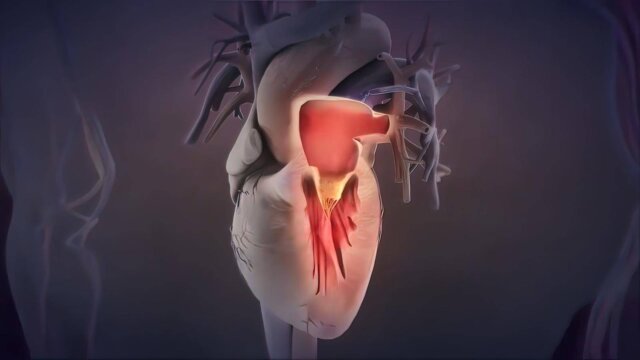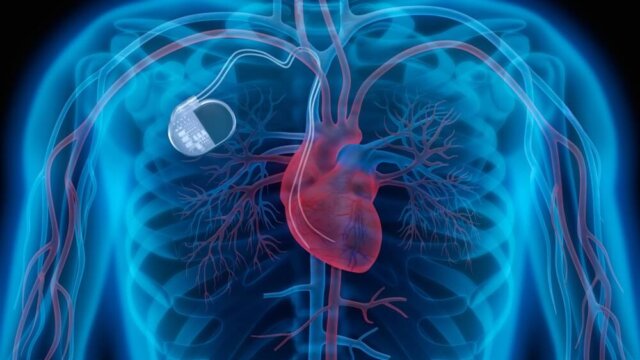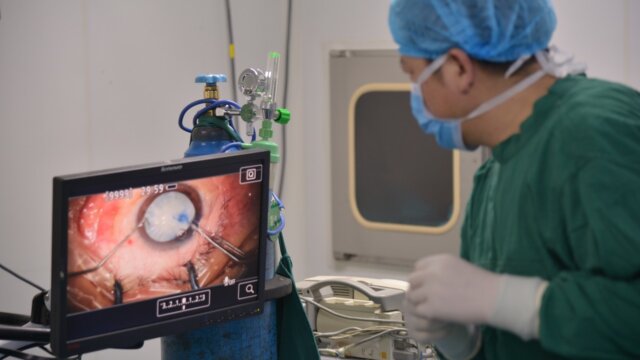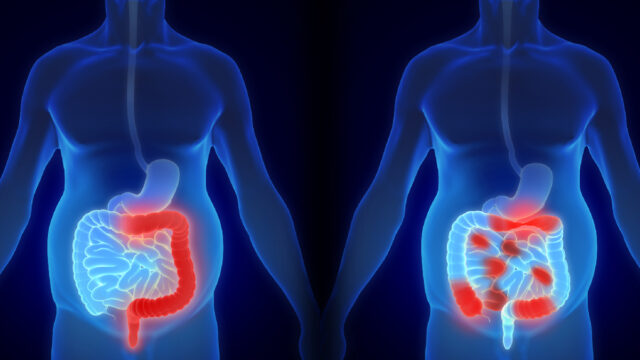FTC disclaimer: This post may contains affiliate links and we will be compensated if you click on a link and make a purchase.
More than 3 million people in the U.S. have inflammatory bowel disease (IBD). This is a chronic condition that causes long-term inflammation of the digestive tract. Even though IBD doesn’t shorten lives much, the goal is to make life better with the right treatment. This condition can cause symptoms like stomach pain, diarrhea, and bleeding in the rectum. If not treated, it can lead to serious problems.
The main types of IBD are Crohn’s disease and ulcerative colitis. These conditions happen when the immune system acts strangely, because of genes and the environment. To manage IBD well, patients and doctors must work together. This condition affects a person’s health, mind, and feelings deeply.
Key Takeaways
- Inflammatory bowel disease (IBD) is a chronic condition that involves long-term inflammation of the digestive tract.
- The two main types of IBD are Crohn’s disease and ulcerative colitis.
- IBD can cause a variety of uncomfortable symptoms, such as abdominal pain, diarrhea, and rectal bleeding.
- While the exact causes of IBD are not fully understood, it is believed to involve an abnormal immune response and genetic factors.
- Effective management of IBD requires a combination of medications, dietary changes, and sometimes surgery, as well as ongoing collaboration with healthcare providers.
What is Inflammatory Bowel Disease (IBD)?
IBD is a chronic condition that causes inflammation and irritation in the digestive tract. It includes Crohn’s disease and ulcerative colitis. Crohn’s disease can hit any part of the digestive system. Ulcerative colitis affects the large intestine and rectum.
Types of IBD
Crohn’s disease and ulcerative colitis are the main types of IBD. Crohn’s disease can strike anywhere from the small to the large intestine. The ileum and parts of the colon are most often hit. Ulcerative colitis causes inflammation and ulcers in the large intestine and rectum.
Ulcerative Colitis vs. Crohn’s Disease
Crohn’s and ulcerative colitis have some similar symptoms but differ in where and how they affect the body. Symptoms include diarrhea, rectal bleeding, and abdominal pain. The exact cause is not known but includes immune system issues, genetic factors, and family history.
People at higher risk for IBD are older adults, certain races, those with a family history, smokers, and users of some painkillers. IBD can lead to serious problems like colon cancer and skin issues. Other complications include fistulas and malnutrition.
“IBD is a chronic inflammation of the digestive tract that may lead to life-threatening complications in severe cases.”
Symptoms of Inflammatory Bowel Disease
Inflammatory bowel disease (IBD) includes Crohn’s disease and ulcerative colitis. It can cause many distressing symptoms. Common symptoms in Crohn’s disease are feeling very tired (80.6%) and having stomach pain (80.4%). In ulcerative colitis, seeing blood in your stool (86.6%) and having loose stools (86.5%) are common.
Common IBD Symptoms
- Chronic diarrhea – Having diarrhea often is a key symptom of IBD. It can cause dehydration and not getting enough nutrients.
- Abdominal pain and cramps – Stomach pain, especially after eating, is common.
- Rectal bleeding – Seeing blood in your stool is a symptom, especially with ulcerative colitis.
- Unintended weight loss – Not absorbing nutrients well and losing appetite can cause weight loss.
- Fatigue – Feeling very tired and having no energy is common in IBD patients.
The symptoms can vary based on where and how much the digestive tract is inflamed. People with colonic Crohn’s disease might have issues with bowel movements. Those with ulcerative colitis might have urgent bowel movements and pass mucus.
IBD can lead to serious problems like bowel blockage, colon cancer, fistulas, and more. Surgery might be needed for severe issues.
“The most common symptoms in ulcerative colitis include seeing blood in your stool (91.18%) and passing mucus with bowel movements (90.91%) for proctitis. For left-sided disease, symptoms include loose or watery stools (86.05%) and urgent bowel movements (84.44%). For extensive/pancolitis, symptoms include loose or watery stools (92.06%) and more frequent bowel movements (88.89%).”
IBD can greatly affect a person’s life because of its chronic and unpredictable symptoms. Knowing the common symptoms is key for early diagnosis and managing the disease.
Causes and Risk Factors of IBD
The exact causes of inflammatory bowel disease (IBD) are not fully known. It’s thought to be a mix of genes and environment that start an abnormal immune response. Researchers have found some factors that might make someone more likely to get this chronic illness.
Potential Causes of IBD
One idea is that an overactive immune system attacks the digestive tract by mistake. This could be due to genes and things like diet, stress, and infections. Also, the balance of good and bad bacteria in the gut might play a role, as an imbalance can lead to inflammation.
Risk Factors for Developing IBD
Even though we don’t know the exact causes, some things can make getting IBD more likely. These include:
- Age: Most people get IBD before they turn 30, usually in their 20s.
- Race: People of certain races, like Caucasians and Ashkenazi Jews, are more at risk. But, IBD is becoming more common in other groups too, like black people in North America and the UK.
- Family history: If a family member has IBD, you’re more likely to get it too, showing it might run in families.
- Smoking: Smoking is a big risk factor, making the disease worse and needing more surgery.
- Medication use: Taking certain drugs, like NSAIDs, can make bowel inflammation worse in people with IBD.
Many people with IBD don’t have any known risk factors. Getting the disease can be due to many things, both genetic and environmental. Researchers are still studying to understand IBD better.
“The precise causes of inflammatory bowel disease remain elusive, but researchers have identified a combination of genetic and environmental factors that may contribute to the development of this chronic condition.”
Diagnosing Inflammatory Bowel Disease
Doctors use a mix of medical history, physical check-ups, and tests to diagnose inflammatory bowel disease (IBD). These tests help figure out the type and how bad the condition is. They also help tell apart Crohn’s disease and ulcerative colitis, the two main IBD types.
Diagnostic Tests for IBD
Blood tests check for signs of inflammation, anemia, and lack of nutrients in IBD. Stool tests look at inflammation level, find hidden blood, and check for infections.
Endoscopic procedures like colonoscopies and sigmoidoscopies let doctors see the inside of the digestive tract and take biopsies. Colonoscopies are key for finding Crohn’s disease or ulcerative colitis. Sigmoidoscopies look at the lower colon part. Upper endoscopies check the esophagus, stomach, and small intestine start.
Imaging tests like X-rays, CT scans, and MRI scans show detailed views of the gut. They help tell apart Crohn’s disease and ulcerative colitis. Capsule endoscopies use a small camera swallowed to look at the small intestine when other tests don’t help.
Blood biomarkers like CRP and ESR show if there’s inflammation. Fecal biomarkers, including calprotectin and lactoferrin, also point to gut inflammation. Blood tests for IBD are simple, just a vein draw in the arm.
Other tests include barium contrast studies, small bowel enteroclysis, and radiologic exams for hard-to-reach small intestine parts. Tests like a complete blood count (CBC) and liver function tests check on IBD patients’ health.
By looking at test results and symptoms, doctors can accurately diagnose Crohn’s disease, ulcerative colitis, or other IBD types.
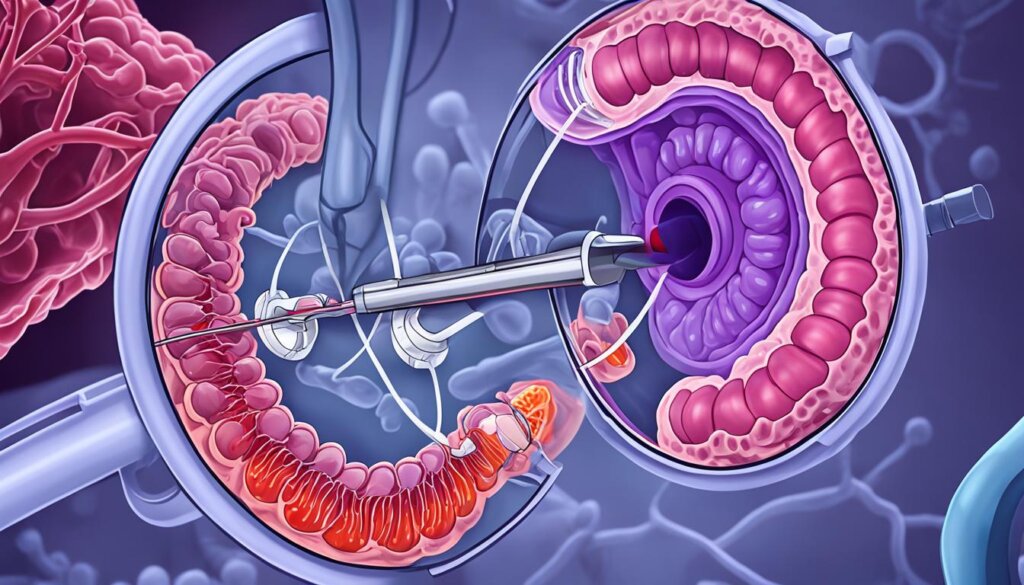
Inflammatory Bowel Disease Treatments
Managing inflammatory bowel disease (IBD) aims to reduce inflammation, ease symptoms, and prevent complications. Doctors often suggest a mix of medicines, diet changes, and sometimes surgery.
Medication for IBD
IBD treatments include many drugs, each focusing on different parts of the disease. Short-term use of corticosteroids like prednisone helps quickly ease symptoms.
For ulcerative colitis, 5-aminosalicylic acid (5-ASA) drugs work well, and they might be used for Crohn’s disease too. Long-term, immunomodulator drugs like methotrexate or azathioprine help manage mild to moderate IBD.
When other treatments fail or for severe IBD, biologic therapies such as anti-TNF medications or anti-integrin agents might be prescribed.
Remember, IBD medications help manage the condition but don’t cure it. Patients often need ongoing medication to keep symptoms under control and prevent flare-ups. Also, avoid NSAIDs if you have IBD because they can make things worse.
Surgical Treatments for IBD
Surgery is sometimes needed for severe or hard-to-treat IBD. These surgeries aim to remove damaged parts of the intestine. Common surgeries include:
- Bowel resection: Removing a damaged intestine part.
- Colectomy: Taking out the whole colon, sometimes with an ostomy.
- Fistula repair: Fixing abnormal connections between organs or skin and the intestine.
Surgery doesn’t cure IBD but can greatly reduce symptoms by removing damaged tissue. Still, surgery has risks and should be discussed with a doctor carefully.
Handling IBD needs a detailed and tailored approach. Doctors and patients work together to find the best treatment plan. This plan might include medicines, diet changes, and surgery in some cases. The goal is to help patients feel better, improve their life quality, and lower the chance of complications.
Medication Type | Purpose | Examples |
|---|---|---|
Corticosteroids | Short-term relief of symptoms | Prednisone |
5-Aminosalicylates (5-ASAs) | Long-term management of mild to moderate IBD | Mesalamine, sulfasalazine |
Immunomodulators | Long-term management of mild to moderate IBD | Methotrexate, azathioprine |
Biologic Therapies | Treatment for moderate to severe IBD | Anti-TNF agents, anti-integrin agents |
“The management of IBD requires a comprehensive and personalized approach, with healthcare providers working closely with patients to determine the most appropriate treatment plan.”
Managing IBD with Diet and Lifestyle Changes
IBD can be tough to handle, but making smart food and lifestyle changes helps a lot. Knowing how food and lifestyle affect you can help you manage your symptoms better. This can make your life feel better overall.
One important step is to find and avoid foods that make things worse. People with ulcerative colitis might need to eat less fiber during flare-ups. Those with Crohn’s disease should avoid nuts, seeds, beans, and kernels to keep symptoms under control. Also, many IBD patients can’t handle lactose well. This can cause gas, bloating, cramps, and diarrhea if they eat dairy.
Drinking enough water is also key. Aim to drink half your weight in ounces of water daily, more if you have diarrhea or exercise. Some IBD patients might find liquid supplements like Peptamen or Peptamen Junior helpful. Modulen IBD is another option that can help with diarrhea and inflammation.
Changing your diet isn’t the only thing you can do. Managing stress and staying active are also important. Stress-reducing activities like meditation, yoga, or talking to a counselor can help. Exercise, even if you can’t do much, can make you feel better and might lower the risk of problems.
Remember, changing your diet and lifestyle can help, but it shouldn’t replace what your doctor tells you to do. Using a mix of medicine, diet changes, and lifestyle tweaks is usually the best way to handle IBD and stay in remission.

Understanding how food, water, stress, and exercise affect IBD lets you take charge of your health. Working with your healthcare team, you can create a plan that makes you feel better and improves your life.
Complications of Inflammatory Bowel Disease
Inflammatory bowel disease (IBD) includes Crohn’s disease and ulcerative colitis. If not managed well, it can cause serious problems. These issues can really affect a person’s life and health.
Potential Complications of Crohn’s Disease
Crohn’s disease is a type of IBD. It can lead to many complications. Bowel obstructions happen when inflammation or scarring makes the intestines narrow. This makes it hard for waste to move through.
Malnutrition is also a big concern. The disease can stop the body from absorbing important nutrients. Crohn’s patients are more likely to get fistulas. These are abnormal connections between the intestines and other organs or the skin.
Crohn’s disease also raises the risk of colorectal cancer. This shows why regular checks and good management are key.
Potential Complications of Ulcerative Colitis
Ulcerative colitis is another type of IBD. It can cause serious problems too. Toxic megacolon is a dangerous issue. It happens when the colon gets very inflamed and expands, which can lead to a perforated colon.
Like Crohn’s disease, ulcerative colitis increases the risk of colorectal cancer. This highlights the importance of seeing a doctor regularly and getting help when needed.
People with IBD, whether it’s Crohn’s disease or ulcerative colitis, may face more issues. These include arthritis, skin problems, eye issues, and liver disease. It’s important to manage these conditions well to avoid serious problems.
Complication | Crohn’s Disease | Ulcerative Colitis |
|---|---|---|
Bowel Obstruction | Common | Rare |
Malnutrition | Increased risk | Moderate risk |
Fistulas | Increased risk | Rare |
Colorectal Cancer | Increased risk | Increased risk |
Toxic Megacolon | Rare | Potentially life-threatening |
Perforated Colon | Rare | Potential complication of toxic megacolon |
People with IBD should work closely with their doctors to watch for and handle complications. Early action and good care can make a big difference in their lives.
“Complications of inflammatory bowel disease can be serious, but with proper management, many can be prevented or minimized.”
Inflammatory Bowel Disease and Cancer Risk
If you have inflammatory bowel disease (IBD), you might face a higher risk of getting colorectal cancer. This risk goes up if your disease is severe or has lasted a long time. This risk comes from the ongoing inflammation in your body.
Doctors suggest regular colonoscopies for IBD patients, starting about 8-10 years after you’re first diagnosed. Catching and removing early signs of cancer can lower your risk of colorectal cancer.
If you have a higher risk, like primary sclerosing cholangitis or a family history of colorectal cancer, you might need a colonoscopy every year. Those with lower risk might only need one every 2-3 years.
IBD patients face a high chance of getting early colorectal cancer. Studies show a 10% risk for those with ulcerative colitis. During colonoscopies, doctors take random biopsies every 10cm to check for signs of cancer. Using special techniques like chromoendoscopy can help spot these signs better.
If tests show signs of serious cancer risk, removing part of your colon is often advised. But, if the risk is lower, you might just need more colonoscopies.

“Patients with IBD have a 7% risk of colorectal cancer after 30 years of the disease.”
It’s key for IBD patients to talk often with their doctors and follow screening advice. This can help lower the risk of cancer. By getting checked regularly, you can catch cancer early and get the right treatment.
Living with Inflammatory Bowel Disease
Living with inflammatory bowel disease (IBD) is tough, both physically and emotionally. People with IBD face ups and downs every day. Finding ways to cope can help manage symptoms and support your feelings.
Coping Strategies for IBD
Knowing what foods to avoid is key to handling IBD symptoms. Many people feel left out because of their condition, which hurts their confidence and happiness. Stress-reducing activities like meditation, yoga, or deep breathing can ease the mind and body.
Having close friends and family, and joining support groups, is very helpful. These relationships often change because of IBD, causing stress and changes in support.
Going out can be hard for those with IBD. They need to plan for bathroom access and might need help on outings. Many also struggle with how IBD affects their body, hurting their self-esteem and mental health.
Working with doctors to find the right treatment plan is important. With the right care, lifestyle changes, and coping skills, many people with IBD can overcome their challenges and live well.
Inflammatory Bowel Disease in Children and Adolescents
Inflammatory bowel disease (IBD) is a chronic condition that can hit kids and teens. It affects about 1.6 million Americans, with up to 80,000 kids. Most people get diagnosed with IBD before they turn 35, making it a big deal for young folks.
IBD comes in two main types: Crohn’s disease and ulcerative colitis, both of which can hit kids. Kids with IBD go through ups and downs, having times with no symptoms and times with inflammation.
Symptoms include belly pain, diarrhea, blood in stool, needing to go often, and losing weight. Some kids might also get skin rashes, joint pain, feel tired, or have fevers.
Figuring out IBD in kids and teens is tough and needs lots of tests like blood work, stool tests, imaging, and endoscopies. The goal of treatment is to ease symptoms, stop flare-ups, heal the gut, and get into remission. Treatment might include meds, special diets, and sometimes surgery.
Kids with IBD might miss school, have trouble making friends, and struggle to keep up with their life. They need a team of doctors, nutritionists, and mental health pros to help them out.
But, there’s help out there for kids and teens with IBD. Duke Children’s Hospital & Health Center is top-notch in many areas and has a special program for teens with IBD. There are also groups for parents and social workers to help families with IBD.
“Inflammatory bowel disease can have a big effect on kids and teens’ growth, health, and feelings. But, with the right care and support, they can handle it and do well.”
Pregnancy and Inflammatory Bowel Disease
If you have inflammatory bowel disease (IBD), like Crohn’s or ulcerative colitis, you might worry about how it affects your pregnancy and baby’s health. The good news is that many women with IBD can have healthy pregnancies and births.
Active IBD can make it harder to get pregnant and might raise the risk of losing the pregnancy. Medicines for IBD, like steroids, can also affect fertility and pregnancy. It’s key to work with your doctors to manage your IBD before and during pregnancy.
Pregnancy can change how IBD acts. Some studies suggest that IBD might get worse during pregnancy, especially if it was active when you conceived. You’ll need regular check-ups to watch your condition and your baby’s growth, especially if you’re on steroids or having bad flares.
For your baby’s health, there are things to think about. Women with Crohn’s disease might have a higher chance of having babies that are too small or born too early. Some IBD medicines can also affect men’s sperm quality. Your healthcare team can help you manage these risks for the best outcomes for you and your baby.
With the right planning, managing your disease, and teamwork between you, your gastroenterologist, and your obstetrician, you can have a healthy pregnancy and baby even with IBD. Studies show that controlling your disease before pregnancy and getting care from a team can lead to better pregnancy results for women with IBD.
“Pregnancy can be a challenging time for individuals with inflammatory bowel disease, but with proper management and a dedicated healthcare team, many women are able to have successful pregnancies and deliveries.”
Support Resources for IBD Patients
Living with inflammatory bowel disease (IBD) can be tough and lonely. But, there are many support resources out there to help. Groups like the Crohn’s & Colitis Foundation offer educational materials and connect people with local groups. They also work to improve IBD research and care.
Online communities are great for people with IBD to share stories, ask questions, and find support. Websites, blogs, and social media like Facebook and Reddit help connect with others who get what it’s like.
Mental health experts can also help with the emotional side of IBD. They offer counseling and strategies to cope with the challenges of living with a chronic illness.
IBD Support Groups and Educational Events
Local IBD support groups meet monthly, offering a place for people to share and understand each other’s experiences. These meetings are now online because of COVID-19.
Educational events are also available for the IBD community. They include webinars and talks by experts like Dr. David T. Rubin and Dr. Russell Cohen. The IBD Center also trains future doctors, making sure they can help people with IBD well.
Online Resources and Advocacy Opportunities
Online, there are blogs, communities, and organizations that support people with Crohn’s disease. They offer help and info to make living with the condition easier. Healthcare providers can also suggest in-person support groups.
Groups like the Crohn’s and Colitis Foundation, the CDC, and Connecting to Cure Crohn’s and Colitis offer lots of info and connect people with others who have IBD. Doctors’ groups like the American College of Gastroenterology are also great resources.
For help with treatment costs, there are resources like the Medicine Assistance Tool and the Crohn’s and Colitis Foundation’s Patient Financial Assistance Programs.
The IBD community is also active in advocacy. Events like Crohn’s & Colitis Awareness Week and World IBD Day raise awareness. Groups like Girls with Guts and the Crohn’s and Colitis Foundation offer support and help.

In summary, people with IBD have many support options. From groups and online communities to mental health help and educational programs. Using these resources, IBD patients can better manage their condition and improve their lives.
Inflammatory Bowel Disease Research and Clinical Trials
Researchers are working hard to understand inflammatory bowel disease (IBD). They look at the gut microbiome, biologic therapies, and small molecule drugs. They aim for personalized treatments for IBD.
Clinical trials give hope to patients. They offer new therapies not yet approved. Patients in trials get close monitoring and often do better than others.
These trials are closely watched to make sure patients get the best care. They also get new treatments being tested.
Research could greatly improve life for people with IBD. For trial info, contact the IBD Center’s Clinical Trials Coordinator.
The Mayo Clinic’s Inflammatory Bowel Disease Clinic is leading in research. They work on gut health, microbiome, and more. The Center for Individualized Medicine and IBD Biobank Study help too.
The IBD Center at Washington University and the Mayo Clinic’s Clinical Trials Program offer trials for IBD patients. These trials give access to new treatments and help IBD science.
“Clinical trials are crucial for determining the efficacy of new therapies for IBD. They offer patients access to cutting-edge treatments and play a vital role in advancing our understanding of these complex conditions.”
By joining trials, IBD patients can try new treatments. They also help make better treatments for others with IBD.
Conclusion
Inflammatory bowel disease (IBD) is a complex condition that affects both body and mind. Thanks to better understanding and treatments, many people with IBD can manage their symptoms. This lets them live full and active lives.
Working with doctors, making lifestyle changes, and using support resources helps people with IBD. This approach lets them control their condition and improve their health over time. Tracking IBD’s progress helps us understand it better, from its start to when it becomes common. We use things like Ceiling Incidence Range and EWAR-IBD to track it.
The ibd overview in this article gives a deep look at the condition. But, managing and improving IBD is up to both doctors and patients. By being informed and active, people with IBD can improve their health and quality of life.
FAQ
What is inflammatory bowel disease (IBD)?
IBD is a long-term condition that causes inflammation in the digestive tract. It includes Crohn’s disease and ulcerative colitis as main types.
What are the symptoms of IBD?
Symptoms include chronic diarrhea, stomach pain, and rectal bleeding. You might also lose weight without trying and feel very tired.
What causes IBD?
The exact cause is not known but it’s thought to be genetic and environmental. Things like diet, stress, and infections might trigger it.
How is IBD diagnosed?
Doctors use your medical history, physical check-up, and tests like blood and stool tests. They might also do endoscopies.
How is IBD treated?
Treatment includes medicines, diet changes, and sometimes surgery. Doctors use anti-inflammatory drugs and other therapies.
Can diet and lifestyle changes help manage IBD?
Yes, changing your diet and lifestyle can help. Avoid certain foods, drink plenty of water, manage stress, and exercise regularly.
What are the potential complications of IBD?
Without proper treatment, IBD can cause serious problems like bowel blockages and malnutrition. It can also increase the risk of colorectal cancer.
Does IBD increase the risk of colorectal cancer?
Yes, people with IBD have a higher risk of colorectal cancer. Regular colonoscopies are important to find and remove early signs of cancer.
How can children and adolescents be affected by IBD?
IBD can affect kids and teens too. It can slow growth, affect development, and harm mental health. They need special care from doctors and therapists.
What support resources are available for people with IBD?
There are many groups and professionals who offer help. They provide information, connect you with others, and help you cope with the condition.


